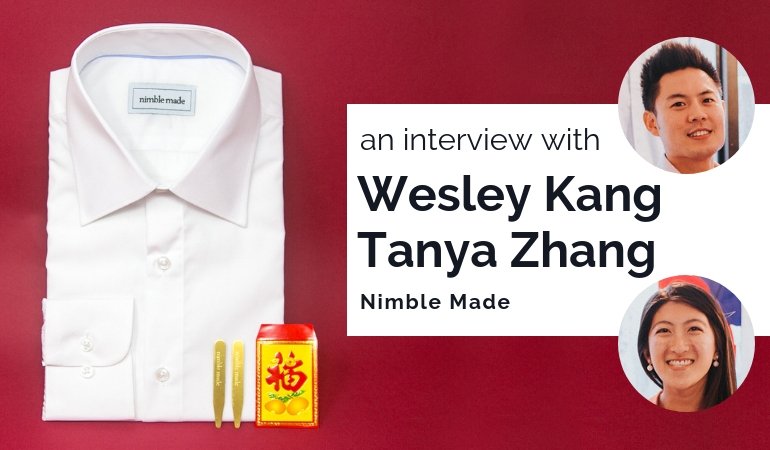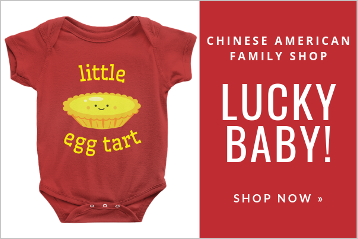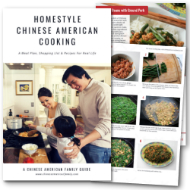This article is part of our Spotlight on Chinese American Entrepreneurs. Sign up for our newsletter to receive family-friendly activity, recipe and craft ideas throughout the year!
For Wesley Kang and Tanya Zhang, cofounders of the men’s fashion brand Nimble Made, helping others find the right fit is more than marketing — it’s a mission. Their entrepreneurial ambitions extend past designing slim-fit dress shirts for slender men to fostering a more inclusive fashion industry and encouraging other Asian Americans to embrace their unconventional career aspirations.
I recently had the opportunity to speak with Wesley and Tanya on the phone to explore what they’ve learned since launching Nimble Made in August 2018. They generously shared the personal struggles that inspired their entrepreneurship, the business assumptions they’ve had to reconsider and the special sense of joy that comes from working with the support of family and friends.
With technology enabling consumer start ups that would have been unimaginable even 10 years ago, it’s exciting to see entrepreneurs serving communities ignored by larger brands. As a tall, slender man myself, I can relate to the challenge of finding a well-fitting dress shirt, so I am heartened to see a company like Nimble Made tackling the problem.
If you need a high quality dress shirt with a true slim fit, or just want to support a new small business founded by Asian Americans, check out Nimble Made. Readers can use code REDBEAN15 to receive 15% off their dress shirts until May 31, 2019.
Wesley and Tanya shared lessons from launching a new fashion brand, ways that an Asian American identity informs their marketing efforts and tips for helping family members embrace entrepreneurial career paths. These are edited excerpts from our conversation.
Nimble Made creates slim-fit dress shirts and works toward more inclusive fashion industry sizing standards. What unique perspective do you have as Asian American co-founders launching a new fashion brand?
WESLEY KANG: The core of our company is inspired by our personal struggles and our experiences as Asian Americans working in modern corporate America. Creating Nimble Made is about changing standards in the fashion industry and perceptions of what success means, in particular for our generation of Asian Americans. We’re showing interest in entrepreneurship and other unconventional paths to success, which don’t involve attending a good college, landing a coveted corporate job and climbing the ladder. Nimble Made takes inspiration from my personal struggles finding a well-fitting dress shirt as a slender Asian man, while creating a dialogue to say that success doesn’t have to include being in traditional fields like banking, law or medicine. I want to encourage our generation to have the bravery and courage to pursue other things.
TANYA ZHANG: It’s tough starting your own brand and it’s made tougher for us because of the lack of Asian American representation in our industry. We’re looking for mentors with ecommerce backgrounds, who also understand the obstacles Asian American founders face when they self-fund their own companies. We made the choice to bootstrap our company very intentionally, because we want this to be a very personal brand to us. There’s a lot of hype that successful start ups should get a million dollars of funding, then push it all on ads. To us, that’s just not very responsible spending. It’s been hard for us as the children of immigrant parents to take money out of our savings and put it into a business, to quit corporate jobs and start an Internet company. You don’t see many Asian American entrepreneurs in this field, because perhaps it’s not seen as a valid or successful career path, and you don’t see that many Asian fashion models on these big retail brands. How can we think we’ll be successful when we don’t see others who look like us making it, as well?
It feels like Asian Americans are gaining more mainstream prominence right now, whether in the media, sports, activism or entrepreneurship. How does this cultural moment affect your work in the fashion world?
TZ: It’s been great lately with all of these amazing films, obviously Crazy Rich Asians and Searching featuring John Cho, representing Asian American contributions in Hollywood. Personally, I’m walking through the streets of New York and seeing Henry Golding on a billboard. That’s amazing! We’re grateful to be starting a brand during this time when people are excited and there’s more representation happening. But, that’s all in the entertainment industry and we’re trying to push beyond that. We intentionally look for Asian Americans and other people of color to feature as our models for our dress shirts. When someone comes to our web site, they can say, “Wow, this guy looks like me and I can imagine what I would look like wearing this dress shirt.” We’ve gotten great feedback from aspiring models in the Asian American community and helping to push their modeling careers forward has also been really rewarding.
Cultural marketing can be tricky — you want to create a distinct identity without pigeonholing yourself. How do you think about expressing an Asian American identity in your product and brand marketing?
WK: We’re still figuring this out on a daily basis, as it’s difficult to find that delicate balance. We’re careful with our words. For instance, we don’t say explicitly, “this was built for Asian Americans,” but we use a softer tone to say that, “this was inspired by an Asian American story or founded by Asian Americans.”
TZ: It’s a fine line. We want to be an inclusive, rather than exclusive, brand. I think we approach the challenge from a very personal place. Nimble Made was inspired by the struggles Wesley and my father faced trying to find a well-fitting dress shirt. These are very personal things that I’m happy to share with people to explain why I’m building this brand. This is a brand that’s only for Asian Americans — we realize that there are a lot of people who can’t find a dress shirt that fits them. They’re either super tall, or skinny, or shorter. We strive for inclusion in sizing by starting with a slim fit shirt that actually fits. We’ll start by focusing on this very specific problem, then use that success to build out for different body types from there.
You launch a new business with a set of assumptions, then course correct based on what you learn. What did you assume about your business and customers before you launched? And, what have you learned since?
WK: Entrepreneurs have these grand assumptions, partly driven by the media. We expect the best products, the best movies, the best food, the best of everything. These days, when people try something new, they always expect it to be the best. The reality of entrepreneurship, however, is really far from that. You make mistakes hundreds of times.
I assumed that building a successful ecommerce company was about getting good at Facebook ads. Then, you realize that Facebook advertising requires understanding how the ads work, how to develop creatives and how to write copy. All of those things require specific skill sets, too. Starting with one assumption, you quickly learn that you actually need to know 50 different things to deliver on that assumption. Then the outcome is almost always different from your expectation!
We went in expecting that we would start slow, but once we learned a few things it would be smooth sailing. That couldn’t be further from the truth. Everything we’ve done to date has been a definite struggle, but I’ve learned so many different skills that I would never have learned had I stayed in finance. This concept extends across the entire business.
TZ: We started the brand with these marketing personas and assumed that our customers were going to be the Corporate Carls of the world, they’re lawyers, bankers and anyone who need to look sharp in corporate America. We assumed these people would be our main customer base, because they need to wear a dress shirt to work every single day. It’s been interesting because we haven’t yet confirmed that these Corporate Carls are our customers. My hypothesis is that these people are brand loyal to their Brooks Brothers, Thomas Pink or Calvin Klein dress shirts that they’ve been wearing for years. As a result, we’ve been thinking lately about younger, recent grads who are buying dress shirts for their first job interviews and transitioning from college to working full time. They may be people who are attracted to a new brand, value our transparency and are open minded toward something new.
How do you think about your place in the Asian American community as entrepreneurs? What are some of the other Asian American brands that you admire?
WK: Nimble Made is a very personal brand for me. As an Asian American, I identify with the traditional values of family, community and hard work. Being willing to put in the sweat to find success — to me, that’s what it means to be an Asian American. I came to the United States when I was about 7 years old and one my first struggles in life was learning English. I regret doing it, but there were times when my parents would call and I would not speak Mandarin with them because I was ashamed to speak anything other than English.
Today, being proud of who I am, sticking to my roots and really respecting my family and being grateful for what they’ve done is really important to me. I think every Asian immigrant can relate to that. We’re bootstrapped, we don’t have investors or hire people to do things for us because we want to put in the sweat. For me, the brand has been a lot about learning everything I can and proving to the world that we’re people who work really hard and that it pays off.
TZ: We really own up to our backgrounds and identities. For example, when we design our dress shirts, we give them specific names. One of our original dress shirts is a pink one we named The New Year. In the description, we go further into the Lunar New Year and its traditions. The shirt is obviously inspired by the holiday, but it’s a really subtle, thematic wink to our Asian American community without saying, “Hey, wear this on Chinese New Year.” These are the types of things that are really fun and make us feel like we’re educating people about our culture.
In terms of brands we admire, we look at other Asian American founded companies that are further along in their journeys than we are. For instance, Pepper Bras was founded by an Asian American woman and makes bras for flatter-chested women. Then, there’s Jins and Covry, who make eyeware for people with lower-bridged noses.
Stepping away from a traditional career path that may be viewed as safe or stable is difficult! What is your message about entrepreneurship to Asian American parents and young adults?
WK: I think the most important thing is for modern Asian American families to be open minded and open to communication. For me, I never say “I love you” to my parents because it feels really weird. We just never did it and over time we felt the pressure of not being able to communicate that way. If you communicate, then you really understand what your family members are interested in and passionate about. You’ll be less quick to judge when people want to try new things.
When there’s a particularly creative or ambitious child in a family who might end up as an entrepreneur, he or she might show signs early on. As parents, we need to be more observant and communicate more, then we need to be open minded to the fact that there are so many more paths to follow in today’s world. With that premise, we can be a lot more open to what people can accomplish when they put their minds to it. People shouldn’t be limited to what they’re supposed to do, rather than what they actually want to do.
TZ: I think Wesley and I are both very family-oriented and our parents’ support was very important to us. Both of my parents are very traditional and I strategically brought my mom around to this idea about 6 months before I quit my corporate job. I’m a very risk-averse person, so leaving my corporate job was not easy. I was literally standing in my own way and being able to talk it through with someone you love is so important. We discussed our backup plans and talked through what happens if this totally fails. For us, the worst case scenario is that Nimble Made doesn’t work out after a year or two and we have to get new jobs in the corporate world. After everyone in our circle realized that, it was like, “Oh, that’s not that bad, we can do that!” Having a backup plan was very helpful for everyone.
Starting our own brand together, with the support of our family and friends, to pursue our passion has been super rewarding. It’s so fun to wake up every day excited about life, to push ourselves and to learn so much. It’s been nothing other than a great experience.
###
Your turn! Have you checked out Nimble Made’s dress shirts? What inspiration do you draw from Wesley and Tanya’s experience?





Leave a Reply